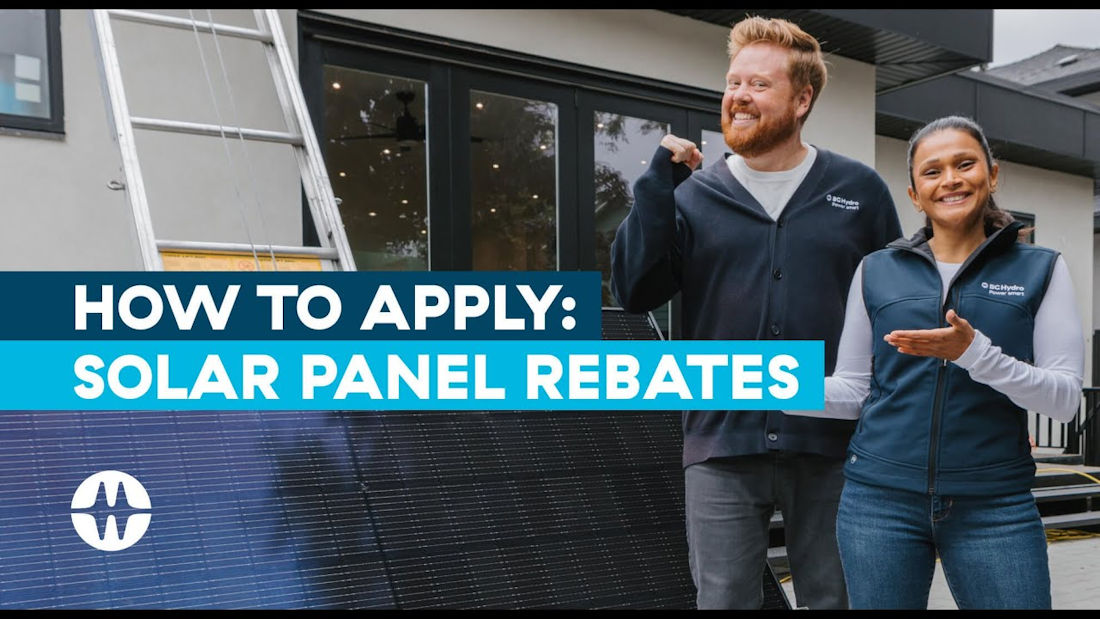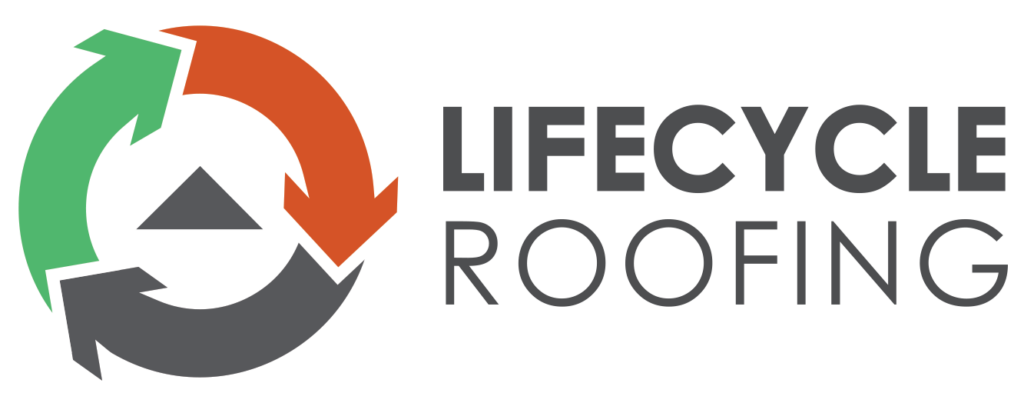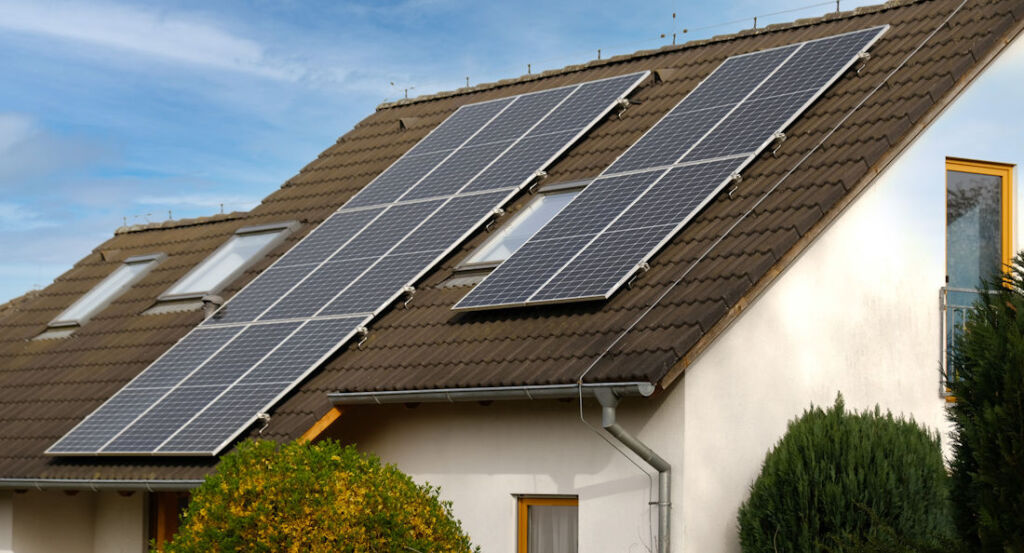Solar power is on the rise across BC. Take a drive through any new housing developments and you’ll probably notice the shiny panels lining the side of roofs – even older, more established neighbourhoods are starting to incorporate solar.
With the rising costs of electricity and the increasing desire to lower carbon footprints, it’s easy to see why solar is taking the province by storm. This article will explore the many benefits of going solar along with how the power generation and billing processes work.
But first, how does it work?
How Solar Power Works
Solar power generation is surprisingly simple. Panels with photovoltaic cells are installed on top of your roof, which convert the BC sunlight into direct current (DC) electricity. With the help of an inverter, that DC power is converted to alternating current (AC) electricity, which is the type used to power homes. That AC electricity is sent directly to your electrical panel, powering lights, appliances and everything else.

Billing for Solar Power
It costs nothing to use the solar power that your solar panels produce. Everything produced by your panels goes directly to your home, and if there’s any excess power produced, it’s sent back to BC Hydro. Sending these excess amounts back to BC Hydro will generate you credits, which will be used to offset your future energy bills. If your panels don’t produce enough to power your entire home, you’ll draw from the BC Hydro grid and will only be charged for what your solar panels did not generate.
BC Hydro will still send you a bill every two months, but the total will be significantly lower if you’re using solar to power your home. There will be a basic charge that applies for all grid-connected customers, plus any electrical power you used throughout the month. But if you’re solar panels produce enough electricity to power your home, the BC Hydro bill will be microscopic in comparison to bills of the past.
Reasons to Switch to Solar
Solar is the energy source of the future, no doubt. Technology is advancing, the government is stepping up, and people across the province are realizing that lowering our carbon footprint is something we can all take control of. Here are the big reasons to switch to solar:

Cost Savings
Perhaps the number one driver for switching to solar is the investment in cost savings down the road. Switching to a renewable energy source is a nice ideal, but if it were too expensive it would never gain traction. Solar is the answer.
Switching to solar power requires a significant investment up front. As a result, your monthly electricity bill shrinks dramatically. Eventually, you’ll make your money back, which typically takes around 8 to 12 years for most BC homes. For that reason it makes sense for homeowners who expect to be living in one place for a while, but installed solar panels also have the ability to drive up your home’s value if you decide to sell.
In the past decade or so, the deal has only gotten sweeter. Solar power technology has made significant technological advancements, driving down the cost of the initial investment. The government has also stepped up in an effort to incentive the switch to solar.
Government Incentives

There are a number of incentives being offered for homeowners who decide to switch to solar power. First, there are BC Hydro rebates. For systems installed after June 2024, you can get up to $5,000 for installation, calculated as $1,000 per kilowatt of installed capacity capped at 50% of the total installation cost. You can also get up to $5,000 for your energy storage system.
The provincial government will help you out directly as well. BC is currently the only province in Canada that has scrapped the tax on solar panels, inverters and cabling, representing 7% in savings.
If you want help with the initial solar investment, the federal may be able to help. In the past, the Canada Greener Homes Loan helped homeowners finance the switch to solar (among other energy efficiency retrofits). Be sure to keep an eye out for future loan programs!
Energy Independence
Switching to solar power provides your family with the unique benefit of energy independence. Producing your own energy, your home will no longer need to lean on the electrical grid.
When you rely on the grid for 100% of your energy needs, you’re at the mercy of aging infrastructure and unpredictability. The grid is prone to go down, producing power outages. This can happen when infrastructure is damaged or destroyed, plus outages can also occur from too much stress on the system. And with the demand for electricity increasing in BC, outages are even more likely.
Relying on the grid also means you’re at the beck and call of BC Hydro. When prices change, you’ll have no choice but to pay them. In 2024, electricity rates increased 2.7%, and 2025/2026 is expecting a 3.75% increase.
When you go solar, you become energy independent. That means the end of rising electricity costs and no more power outages.
Environmental Sustainability

The sun is the best renewable energy source we’ve got. Capturing solar power doesn’t require extraction or clearcutting, plus the sun doesn’t require maintenance. With the ability to convert and store solar power, it’s really a no-brainer.
Solar panels produce zero greenhouse gas emissions. So by switching to solar, your home reduces its reliance on fossil fuels and dramatically lowers your carbon footprint. And because solar panels can easily be added to the roof of homes, there’s no need for building new material-intensive installations. As a result, installing solar panels on your roof and minimizing your reliance on the grid is one of the most sustainable choices you can make.
If you’re curious about installing solar panels on your roof and claiming government rebates, contact Lifecycle Roofing in Victoria. We can walk you through the process and help you make the switch. Request a solar panel quote today via our online contact form or give us a call at 778-678-8566.

